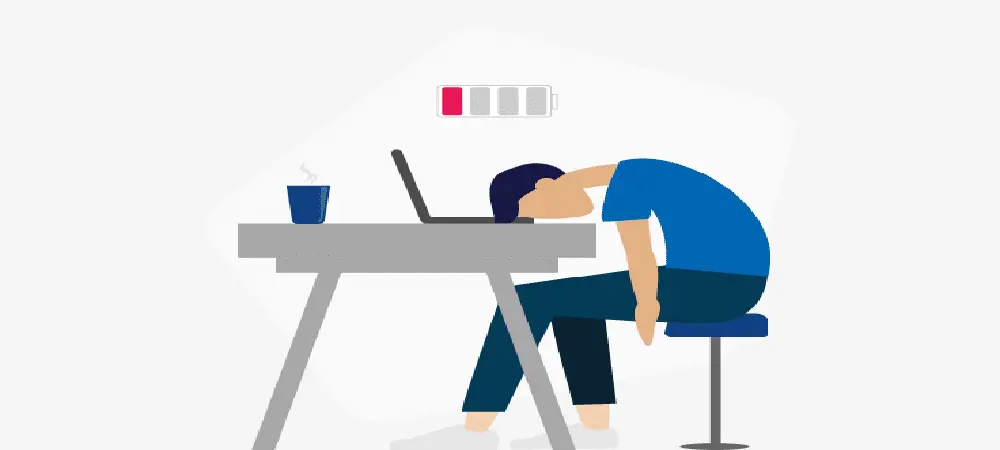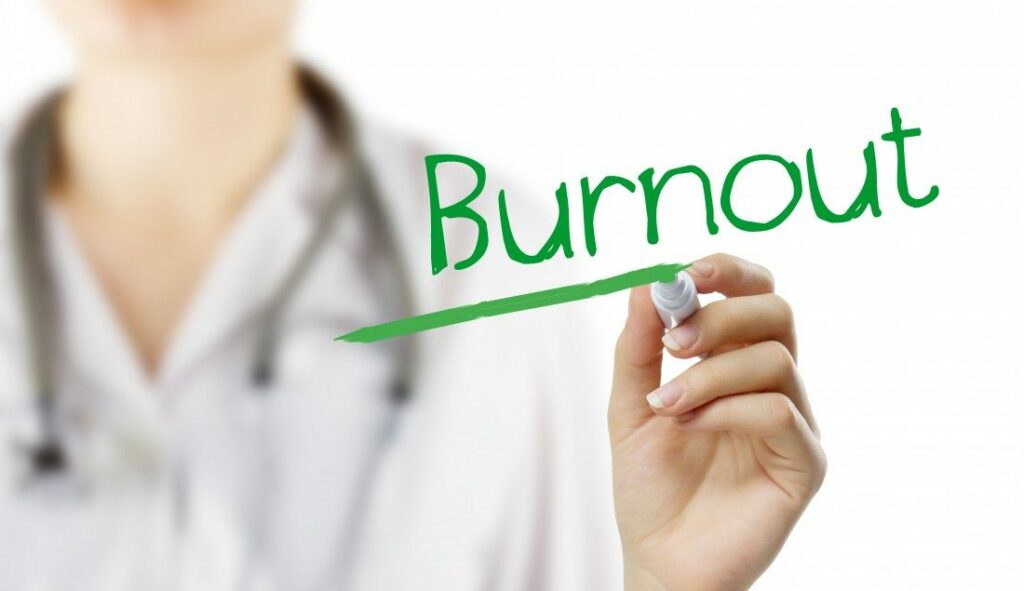In today’s digital age, the internet is flooded with tips on boosting productivity and maximizing time efficiency. Reading these tips often makes us feel like we’re not doing enough to achieve our dreams. We implement these tips, hoping for progress, but in doing so, we neglect rest, thinking of it as a waste of time.
This all works great for a while. We experience a surge of excitement as we check off items from our extensive to-do lists, only to create even longer ones, inspired by the seemingly greater accomplishments we observe others achieving online. Eventually, we find ourselves in a state of mental and physical exhaustion. What’s happening? Where did that adrenaline rush go?

Thw History of Burnout
In the 1970s, psychologist Herbert Freudenberger coined the term burnout, which translates to burning out. Burnout denotes a state of mental, emotional, and physical exhaustion caused by prolonged and intense stress. It’s often mistaken for ordinary fatigue. However, unlike fatigue, burnout doesn’t disappear after a few nights of good sleep. Moreover, if not recognized and treated, it can lead to serious physical and mental illnesses, such as depression, heart disease, and diabetes.
Who is susceptible to burnout?
Anyone constantly exposed to high levels of stress can experience burnout. Doctors, nurses, and medical technicians, as well as medical students, are particularly prone to it. Research shows that the highest rate of burnout is recorded among first-year medical students.
What are the signs of burnout?
- You notice a lack of energy recently.
- You isolate yourself from family and friends.
- You have trouble concentrating.
- You lack motivation.
- You’re overwhelmed with emotions.
- You can’t sleep or rest properly.
- Small things set you off.
- You fall physically ill more often than usual.
- You no longer enjoy things that once made you happy and fulfilled.
What are the stages of burnout?
Understanding the stages of burnout is crucial for recognizing its signs and seeking timely intervention.
Honeymoon phase
Learning and working fulfill you. Good results and ambition drive you to work harder.
Neglecting personal needs
You start sacrificing sleep and neglecting exercise and healthy eating.
Isolation phase
Socializing with family and friends becomes a burden instead of a pleasure. You frequently decline invitations to social activities.
Disillusionment phase
You fall into a vicious cycle, constantly feeling tired and irritable, beginning to overeat or refuse to eat, and even noticing aggression in yourself.
Inner emptiness or anxiety phase
You think about how you no longer have control over your life, feeling particularly disappointed in your academic achievements.
Mental and/or physical collapse
You start feeling helpless, believing you’re incapable of making any change in your life. Professional help is necessary.
Strategies for recovering from burnout and preventing future episodes
After understanding the signs and stages of burnout, let’s explore effective strategies to not only recover from burnout but also to prevent its recurrence in your demanding academic journey.
Identify the source of dissatisfaction
Do you feel you don’t have enough time for school obligations? Do you think the syllabus is rigorous? Are you frustrated with relationships with certain people? Write it all down.
Identify changes you need to make
Looking at your list of dissatisfactions, you may immediately recognize how to ease your burden. Perhaps you took on extracurricular activities or several to enhance your knowledge and skills, but realize that you’ll have to sacrifice much to complete everything. Talk to your superiors in extracurricular activities. Maybe you can extend a deadline or share tasks with a colleague? If that’s not possible, withdraw from the project without guilt. Mental health is most important!
Talk to trusted people
This will help you overcome feelings of loneliness. Family, friends, or a partner can help brainstorm solutions. It’s hard for some to open up and talk about their struggles, thinking others will see them as incompetent or even lazy. Keep in mind that dealing with burnout alone is harder. Also, someone close might have experienced something similar but was ashamed to talk about it. That person might have great advice that could definitely help you and serve as an example to others that it’s not shameful to talk about difficulties.
Set boundaries
Burnout leads you to think you’re powerless. You might not have had control over situations that led to burnout, but you definitely have the power to take control of your life and recharge your batteries! Learn to prioritize and delegate. Learn to recognize when it’s time for a break. Frequently ask yourself if you truly have the time and energy for certain tasks. Essentially, learn to say ‘No’ to conserve precious time.
Pay attention to your needs
Allocate time for quality sleep – for some, that’s eight hours, for others, more. Listen to your body. Include socializing with family and friends in your schedule. Try to incorporate some physical activity every day. You can go for a short walk, do exercises or yoga with interesting videos on YouTube. Drink enough fluids and try to eat as healthily as possible. There are thousands of recipes online for simple and healthy meals. Try them out, why not! If you haven’t already, give meditation a chance. There are studies showing significant benefits of meditation for concentration.
Remember what makes you happy
Were you once good at playing an instrument, painting, learning a foreign language? Include time for these activities in your schedule. Even one hour a week will have a huge impact on your self-confidence! Also, consider reading for at least 20 minutes before bedtime or whenever suits you. Maybe you prefer audiobooks? Great, while washing dishes or doing other household chores, you can relax with a good book.
Consult a psychologist
Facing burnout isn’t easy, especially when it has already dealt you a significant blow. A psychologist or another professional can help you identify the cause and explore possible coping mechanisms. If you’ve already thought about self-harm, it’s crucial to talk to a professional.
Reprogramming yourself after experiencing burnout can be a lengthy and challenging process, but by choosing to face it, you’ve already taken the first step. Keep going and remember that you’re not alone!

